The Top 10 Rugby Teams that Dominate Tournaments
Rugby teams transform matches into extraordinary global events of strength, strategy, and tradition!
Anúncios
Behind each national jersey, there is a rich history of achievements and rivalries that have shaped rugby as we know it today.
What makes certain rugby teams consistently stand out on the world stage? How do some nations with relatively small populations manage to dominate much larger sporting powers?
In today’s article, we will delve into this fascinating world of the top rugby teams globally: what really makes the difference between good teams and the truly legendary ones?
All Blacks (New Zealand)
The most dominant of all rugby teams, the All Blacks personify excellence in the sport with impressive consistency.
Their win rate exceeds 77% in over 600 international matches played since 1903. The haka, a Maori dance performed before matches, has become one of the most recognizable sports rituals in the world.
The All Blacks have won three World Cups (1987, 2011, and 2015) and an impressive 19 Rugby Championship/Tri Nations titles.
The black jersey with the silver fern carries immense historical weight, producing legends like Richie McCaw, Dan Carter, and Jonah Lomu.
Current players like Beauden Barrett, Sam Whitelock, and the Barrett brothers (the first family trio to play simultaneously) uphold the legacy.
The New Zealanders have dominated the Bledisloe Cup against Australia for 20 consecutive years, along with 11 historic Grand Slams in tours of the United Kingdom.
The All Blacks are officially the sports team with the highest win percentage in the history of team sports worldwide.
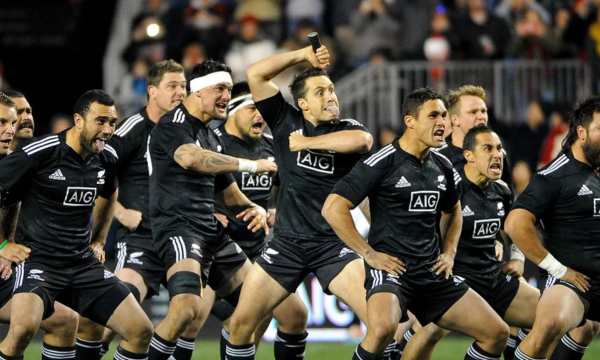
Maori-dance-the-Haka-(Source-Google)
Springboks (South Africa)
The Springboks represent South African pride like few institutions can, being the only rugby team with four World Cup titles (1995, 2007, 2019, and 2023).
Their victory in 1995, with Nelson Mandela presenting the trophy to captain Francois Pienaar, transcended the sport and helped unite the nation.
Siya Kolisi, the first black captain to lift the Cup, leads a brilliant generation with Cheslin Kolbe, Eben Etzebeth, and Pieter-Steph du Toit.
Legends like Bryan Habana and Joost van der Westhuizen set standards of excellence before them.
In addition to the four World Cups, they have won four Rugby Championships and defeated the British & Irish Lions in 2021.
The South Africans built their identity through physical and dominant rugby in direct confrontations. Their extremely organized defensive system functions as an impenetrable wall against any opponent.
Ireland
Ireland’s rise to the top of rugby teams is one of the most remarkable phenomena of the modern era of the sport.
Historically in the second tier, the Irish transformed into a powerhouse after 2010, winning four Grand Slams in the Six Nations (1948, 2009, 2018, and 2023).
The Irish team competes as a unified island, representing both the Republic of Ireland and Northern Ireland, transcending political divisions through sport.
Johnny Sexton, Brian O’Driscoll, and Paul O’Connell set the standard of excellence that young players like Caelan Doris, James Lowe, and Josh van der Flier follow today.
Their first victory over the All Blacks in Chicago 2016 (after 111 years of trying) marked the beginning of a new era. Victorious series in Australia and New Zealand consolidated their elite status.
The Irish provincial system, with four professional teams (Leinster, Munster, Ulster, and Connacht), serves as the perfect base for the national team.
Ireland currently plays rugby with the highest technical precision, with impeccable offensive structures and exemplary tactical discipline.
Les Bleus (France)
The French represent romance and unpredictability in the world of rugby teams, alternating between absolute brilliance and disconcerting inconsistency.
“Les Bleus” have won 18 Six/Five Nations titles (including 10 Grand Slams). The recent gold medal in Rugby Sevens at the Paris 2024 Olympics brought new energy to the sport in the country.
Antoine Dupont, considered the current best player in the world, leads a new golden generation alongside Romain Ntamack, Damian Penaud, and Gregory Alldritt.
They follow in the footsteps of legends like Serge Blanco, Philippe Sella, and Fabien Galthié, the current coach.
The French produced “the greatest try in history” against the All Blacks in 1994, known as the “Try from the End of the World”.
The Top 14, the richest domestic championship in the world, attracts international stars and strengthens the national base.
The Grand Slam victory in 2022 and the performance in the 2023 World Cup confirmed France’s return to the elite, re-establishing it as a global powerhouse.
England
The birthplace of rugby, England carries the weight of having invented the sport and represents one of the most traditional rugby teams.
World champions in 2003 with Jonny Wilkinson’s iconic drop goal in extra time, the English team reached three other finals (1991, 2007, and 2019).
Jonny Wilkinson, Martin Johnson, Jason Robinson, and Will Carling established the tradition that Owen Farrell, Maro Itoje, and Marcus Smith carry today.
They have won 29 Six/Five Nations titles with 13 Grand Slams, along with an impressive record of 18 consecutive victories between 2015-2017, equaling the All Blacks.
Twickenham Stadium, with 82,000 seats, represents the true world temple of rugby. England is historically characterized by structured, disciplined and physically dominant play.
The English Premiership provides technically refined players for international rugby, with a focus on their always imposing pack of forwards and exceptional halves controlling the game with tactical precision.
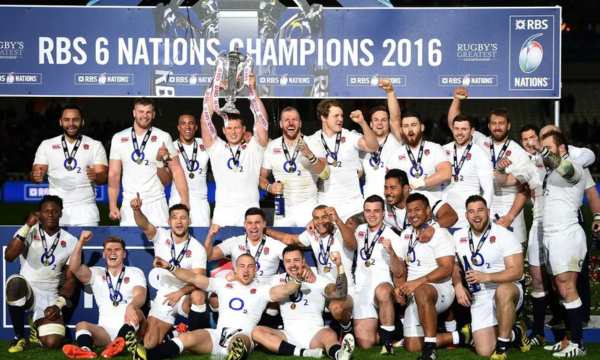
England-wins-Six-Nations-2016-(Source-Google)
Wallabies (Australia)
The Wallabies represent adaptability and creativity in the world of rugby teams, compensating for physical limitations with intelligent and innovative play.
Two-time world champions (1991 and 1999) and winners of four Rugby Championships, the Australians maintain historical traditions such as the Bledisloe Cup against the All Blacks, the Mandela Shield Trophy against the Springboks, and the Cook Cup against England.
David Campese, John Eales, and George Gregan established themselves among the greatest players in history, while Michael Hooper, Samu Kerevi, and Marika Koroibete lead the current generation.
Australia has historically influenced the sport tactically, introducing revolutionary concepts through visionary coaches like Rod Macqueen.
Even sharing attention and talent with other popular codes (AFL, Rugby League, and football), the Wallabies continuously develop versatile players with excellence in creative running lines and fluid passing game.
The Dragons (Wales)
Wales lives rugby with unparalleled intensity, possibly being the nation where the sport most defines national cultural identity.
Among traditional rugby teams, the Welsh have won 28 Five/Six Nations titles, including 12 Grand Slams and 22 Triple Crowns.
Gareth Edwards (often cited as the best player of all time), JPR Williams, and Shane Williams set the standard of excellence now followed by Alun Wyn Jones (world cap record holder), Josh Adams, and Louis Rees-Zammit.
The golden Welsh era in the 1970s produced three consecutive Grand Slams and semi-finals in the 1987, 2011, and 2019 World Cups.
The Principality Stadium in Cardiff, with its retractable roof and 74,000 seats, offers one of the most intimidating atmospheres in world rugby.
Historically, Wales has produced extremely talented backs who compensated for the small population of just three million, maintaining a tradition of skillful and creative rugby even against physically superior opponents.
The Thistles (Scotland)
The Scots represent a fascinating paradox among rugby teams: inventors of a progressive style of play, yet often limited by resources and demographics.
Scotland played the first international match in history, defeating England 1-0 in 1871, officially inaugurating competitive rugby. They have won 15 Six/Five Nations titles with three Grand Slams, the last in 1990.
Gavin Hastings, Greig Laidlaw, and Andy Irvine established legacies now followed by Finn Russell (magical fly-half), Stuart Hogg (try record holder), and Hamish Watson.
The Calcutta Cup, contested against England since 1879, is one of the oldest trophies in the sport, along with the Centenary Quaich against Ireland and the Auld Alliance Trophy against France.
Murrayfield Stadium in Edinburgh, with its unique tradition, becomes a considerable fortress in international competitions.
Their ability to surprise great teams with inspired performances exemplifies the spirit of rugby in its purest form: courage and innovation over pragmatism.
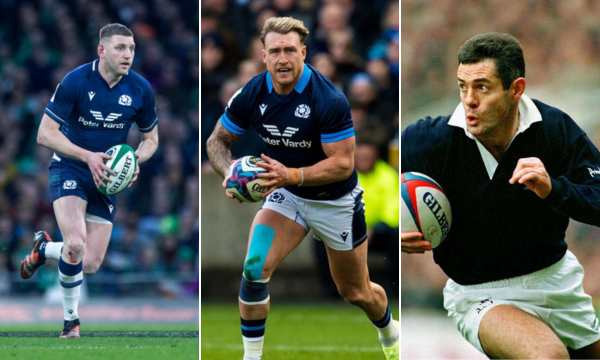
Russell-Hogg-and-Hastings-(Source-Google)
Los Pumas (Argentina)
Argentina’s rise among the top rugby teams represents one of the greatest success stories in the sport in recent decades.
The Pumas impressed the world by reaching third place in the 2007 World Cup, consolidating themselves with historic victories over the All Blacks in 2020 and 2022.
Interestingly, their nickname originated when a South African journalist mistook the jaguar on their emblem for a puma in 1965.
Agustín Pichot, Hugo Porta “El Gran Capitán”, and Juan Martín Hernández “El Mago” paved the way for contemporary athletes like Pablo Matera, Nicolás Sánchez, and Julián Montoya.
Besides the World Cup bronze, they have won 25 South American titles and the historic Nations Championship. Their entry into the Rugby Championship in 2012 consolidated their elite status.
The Argentinians built their identity through a formidable scrum, a world-renowned technique taught from youth categories.
Their passionate defense reflects the exceptional physical commitment characteristic of Argentine rugby.
Flying Fijians (Fiji)
Fiji represents rugby in its most spectacular and free expression, bringing a unique cultural dimension among rugby teams.
The Fijians have won two consecutive Olympic gold medals in Rugby Sevens (2016 and 2021), along with two world titles in the reduced format (1997 and 2005).
Waisale Serevi “King of Sevens”, Rupeni Caucaunibuca, and Josua Tuisova have enchanted fans with supernatural skills, while Semi Radradra, Leone Nakarawa, and Levani Botia lead today.
Fijian rugby is characterized by extraordinary offensive style, with unmatched offload skills and spectacular athleticism.
The players combine impressive physicality with rare coordination through magical offloads that keep the ball alive.
Their 16 Pacific Nations Cup titles and presence in the 2007 World Cup quarter-finals show potential that surpasses structural and economic limitations.
Conclusion
The great rugby teams carry much more than simple sporting results – they are repositories of stories, traditions, and cultural identities that transcend the four lines.
The fascinating ecosystem of rugby teams demonstrates how nations with drastically different resources and populations can compete on the same stage.
As rugby continues its global expansion, these traditional stories will be complemented by new protagonists.
The true rugby fan celebrates both the established powerhouses and the emerging nations, recognizing that the diversity of styles and approaches immensely enriches the sport we love.
FAQ
How often are the main tournaments between rugby teams held?
How can a smaller team qualify for the Rugby World Cup?
Why is the Fijians’ nickname “Flying Fijians”?
Is women’s rugby growing globally?
What is a “Grand Slam” in rugby?
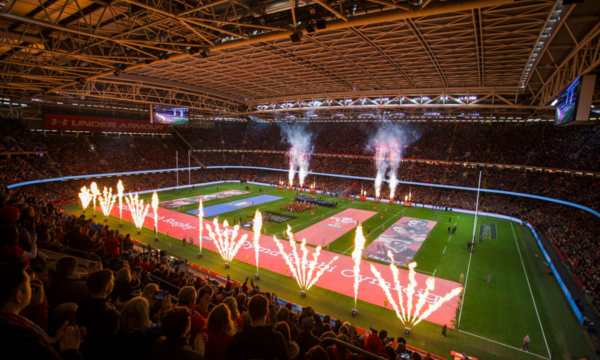 7 Bigger Rugby Fields Every Fan Should Know
7 Bigger Rugby Fields Every Fan Should Know
Pure adrenaline, tradition and unforgettable victories: that’s what great rugby fields are all about. Anúncios Have you ever stopped to think about the rugby fields that […]
Keep reading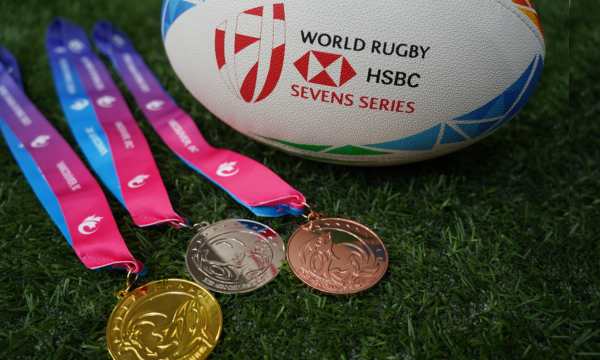 World Rugby Sevens: Get to Know Everything About the Olympic Tournament
World Rugby Sevens: Get to Know Everything About the Olympic Tournament
Discover the electrifying energy of World Rugby Sevens and get ready to fall in love with this dynamic sport. Anúncios This championship combines speed, skill and […]
Keep reading How to Watch Live Rugby on DAZN: Your Complete Guide
How to Watch Live Rugby on DAZN: Your Complete Guide
Ready to feel the excitement of live rugby without leaving your couch? Experience the adrenaline with the Dazn App! Anúncios If you’re someone who cheers for […]
Keep reading